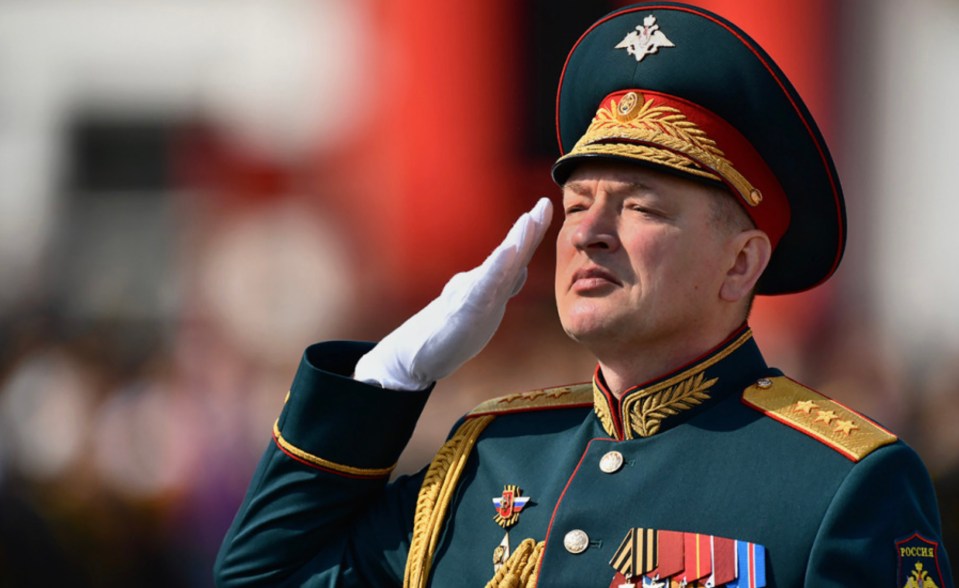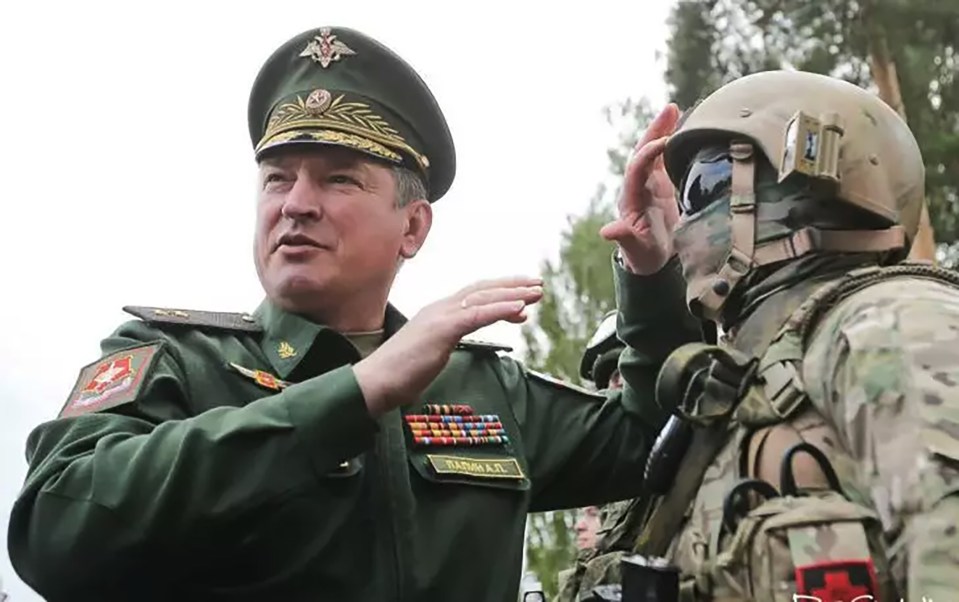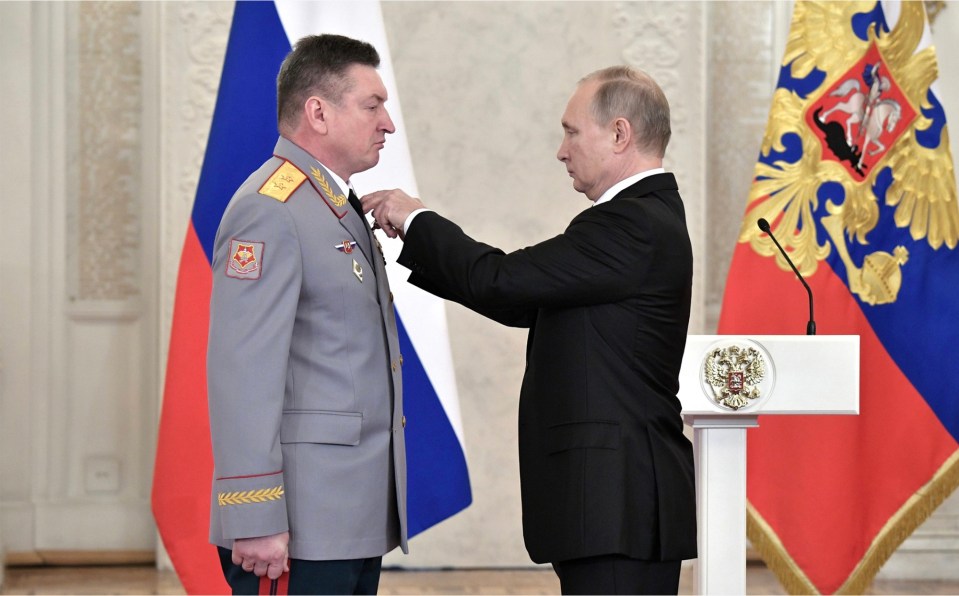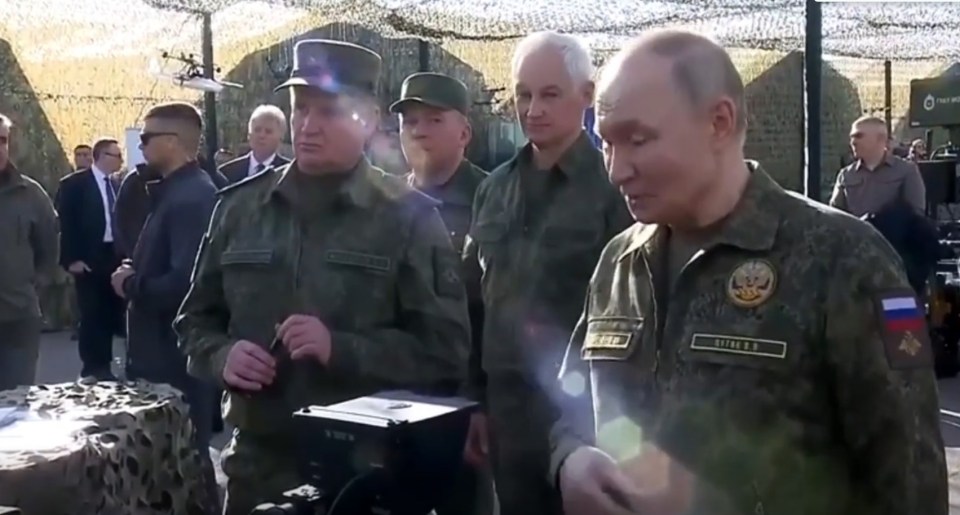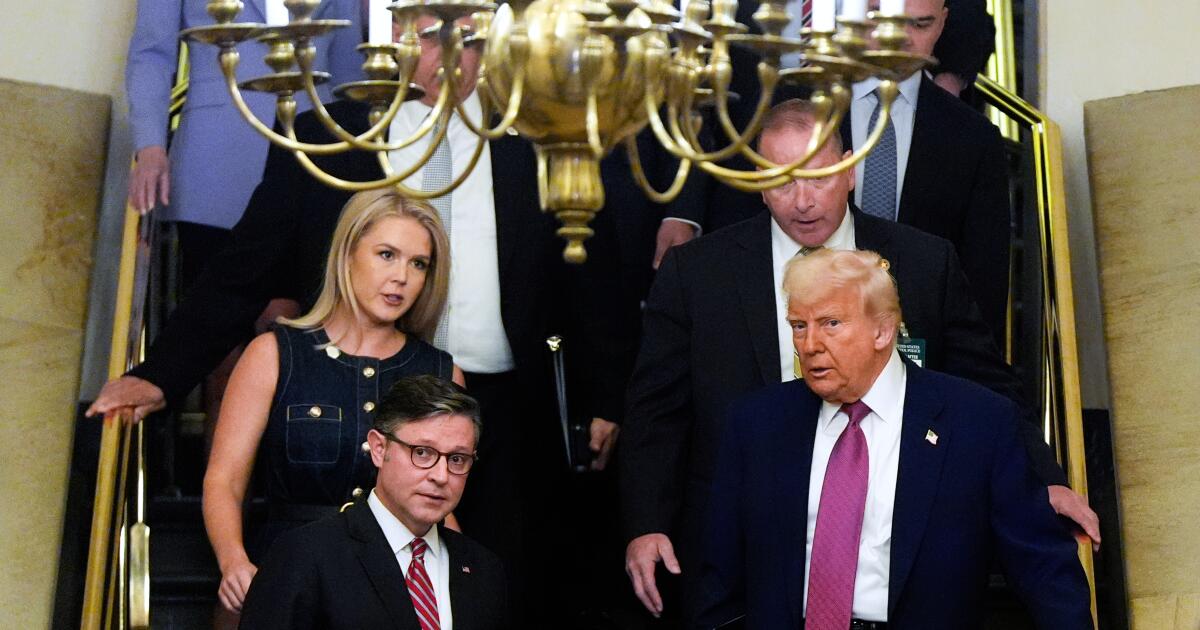WASHINGTON — House Republicans are pushing to vote on their multitrillion-dollar tax breaks package as soon as Wednesday, grinding out last-minute deal-making to shore up wavering GOP support and deliver on President Trump’s top legislative priority.
Trump himself had instructed the Republican majority to quit arguing and get it done, his own political influence on the line. But GOP leaders worked late into the night to convince skeptical Republicans who have problems on several fronts, including worries that it will pile onto the nation’s $36-trillion debt.
A fresh analysis from the Congressional Budget Office said the tax provisions would increase the federal deficit by $3.8 trillion over the decade, while the changes to Medicaid, food stamps and other services would tally $1 trillion in reduced spending. The lowest-income households in the U.S. would see their resources drop, while the highest ones would see a boost, the CBO said.
Republicans hunkered down at the Capitol through the night for one last committee hearing processing changes to the package. Democrats immediately motioned to adjourn, but the vote failed on party lines.
“President Trump’s ‘one, big, beautiful bill’ is going to require one, big, beautiful vote,” said Speaker Mike Johnson (R-La.). “We are going to get this done.”
It’s a make-or-break moment for the president and his party in Congress, who have invested much of their political capital during the crucial first few months of Trump’s return to the White House on this package. If the House Republicans fall in line with the president, overcoming unified Democratic objections, the package would next go to the Senate.
The package comes at a daunting time as the U.S. economy faces uncertainty. Democratic Leader Hakeem Jeffries said Republicans are trying to “quickly jam this unpopular legislation through the House because they know that the longer they wait, the more will come to light about this cruel and unconscionable bill.”
At its core, the sprawling 1,000-plus-page bill is centered on extending the tax breaks approved during Trump’s first term in 2017, while adding new ones he campaigned on during the 2024 presidential campaign.
To make up for some of the lost revenue, the Republicans are focused on spending cuts to federal safety net programs and a massive rollback of green energy tax breaks from the Biden-era Inflation Reduction Act.
Additionally, the package tacks on $350 billion in new spending — with about $150 billion going to the Pentagon, including for the president’s new “ Golden Dome” defense shield, and the rest for Trump’s mass deportation and border security agenda.
The package title carries Trump’s own words, the “One Big Beautiful Bill Act.”
As Trump promised voters on the tax front, the package proposes there would be no taxes on tips for certain workers, including those in some service industries; automobile loan interest; or some overtime pay.
There would also be an increase to the standard income tax deduction, to $32,000 for joint filers, and a boost to the child tax credit to $2,500. There would be an enhanced deduction, of $4,000, for seniors of certain income levels, to help defray taxes on Social Security income.
To cut spending, the package would impose new work requirements for many people who receive health care through Medicaid, with able-bodied adults without dependents needing to fulfill 80 hours a month on a job or in other community activities.
Similarly, those who receive food stamps through the Supplemental Nutritional Assistance Program, known as SNAP, would also face new work requirements.
Older Americans up to age 64, rather than 54, who are able-bodied and without dependents would need to work or engage in the community programs for 80 hours a month. Additionally, some parents of children older than 7 years old would need to fulfill the work requirements; under current law, the requirement comes after children are 18.
Republicans said they want to root out waste, fraud and abuse in the federal programs.
The Congressional Budget Office has estimated 8.6 million fewer people would have health insurance with the various changes to Medicaid and the Affordable Care Act. It also said 3 million fewer people each month would have SNAP benefits.
Republicans have been racing to finish up the package by Memorial Day, a deadline imposed by Johnson as he tries to overcome objections within his own ranks.
Conservatives are insisting on quicker, steeper cuts to federal programs to offset the costs of the trillions of dollars in lost tax revenue. GOP leaders have sped up the start date of the Medicaid work requirements from 2029 to 2027.
At the same time, more moderate and centrist lawmakers are wary of the changes to Medicaid that could result in lost health care for their constituents. Others are worried the phaseout of the renewable energy tax breaks will impede businesses using them to invest in green energy projects in many states.
Plus, a core group of lawmakers from New York, California and other high-tax states want a bigger state and local tax deduction, called SALT, for their voters back home.
As it stands, the bill would triple what’s currently a $10,000 cap on the state and local tax deduction, increasing it to $30,000 for joint filers with incomes up to $400,000 a year. They have proposed a deduction of $62,000 for single filers and $124,000 for joint filers.
Trump has been pushing hard for Republicans to unite behind the bill, which has been uniquely shaped in his image, and he said after meeting with House lawmakers privately Tuesday at the Capitol that anyone who doesn’t support the bill would be a “fool.”
But it’s not at all clear that Trump, who was brought in to seal the deal, changed minds.
One of the conservative Republicans, Rep. Thomas Massie of Kentucky, said afterward he’s still a no vote.
“We’re still a long ways away,” said Rep. Andy Harris (R-Md.), chair of the House Freedom Caucus.
The Committee for a Responsible Federal Budget, a nonpartisan fiscal watchdog group, estimates that the House bill is shaping up to add roughly $3.3 trillion to the debt over the next decade.
Mascaro, Freking, Askarinam and Cappelletti write for the Associated Press.
